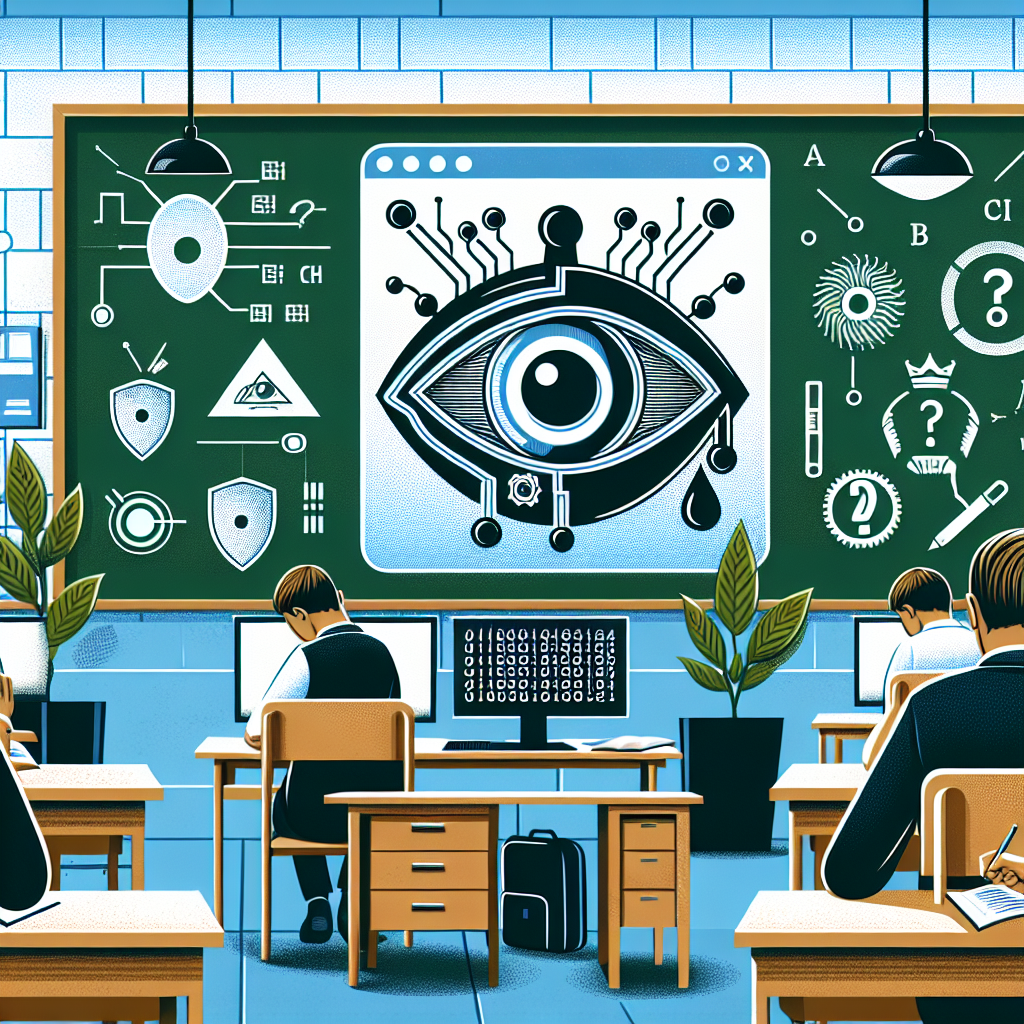Academic cheating has always been a prevalent issue in educational institutions around the world. With the rise of technology, the methods of cheating have also evolved, making it increasingly difficult for educators to detect and prevent dishonest behavior. However, the same technological advancements that have facilitated cheating can also be used to identify and prevent academic dishonesty. One such tool that is gaining popularity in the fight against cheating is artificial intelligence (AI).
AI is a branch of computer science that aims to create intelligent machines that can perform tasks that typically require human intelligence, such as reasoning, problem-solving, and learning. In the context of academic cheating, AI can be used to analyze patterns and detect anomalies in student behavior, helping educators to identify instances of cheating and take appropriate action.
There are several ways in which AI can be used to identify and prevent academic cheating. One common method is through the use of plagiarism detection software, which compares student submissions against a vast database of academic papers, websites, and other sources to identify instances of plagiarism. Another approach is through the use of proctoring software, which uses AI algorithms to monitor students during online exams and flag suspicious behavior, such as looking away from the screen or using unauthorized devices.
In addition to these more traditional methods, AI can also be used to analyze patterns in student data to identify potential instances of cheating. For example, AI algorithms can analyze student performance data to detect sudden improvements or declines in grades, which may indicate cheating. AI can also be used to analyze patterns in student collaboration, such as the frequency and duration of interactions between students, to identify potential cases of collusion.
One of the key advantages of using AI to identify and prevent academic cheating is its ability to analyze large amounts of data quickly and accurately. This can help educators to detect cheating in real-time and take immediate action to address the issue. AI can also help to reduce the burden on educators by automating the process of detecting cheating, allowing them to focus on other aspects of their work.
Despite its potential benefits, using AI to identify and prevent academic cheating also raises ethical and privacy concerns. For example, some students may feel that their privacy is being violated if their data is being analyzed without their consent. Additionally, there is a risk that AI algorithms may produce false positives, leading to innocent students being unfairly accused of cheating.
To address these concerns, it is important for educators to be transparent about the use of AI in detecting cheating and to obtain the consent of students before analyzing their data. Educators should also be mindful of the limitations of AI algorithms and use them as a tool to assist in the detection of cheating, rather than as a definitive judgment.
In conclusion, AI has the potential to be a powerful tool in the fight against academic cheating. By analyzing patterns in student data, AI can help educators to identify instances of cheating and take appropriate action to prevent it. However, it is important for educators to be mindful of the ethical and privacy concerns associated with using AI in this context and to use it as a tool to assist in the detection of cheating, rather than as a definitive judgment.
FAQs:
1. How does AI detect cheating in online exams?
AI can detect cheating in online exams through the use of proctoring software, which uses AI algorithms to monitor students during exams and flag suspicious behavior, such as looking away from the screen or using unauthorized devices.
2. Can AI detect plagiarism in student submissions?
Yes, AI can detect plagiarism in student submissions through the use of plagiarism detection software, which compares student submissions against a vast database of academic papers, websites, and other sources to identify instances of plagiarism.
3. What are the ethical concerns associated with using AI to detect cheating?
Some ethical concerns associated with using AI to detect cheating include privacy violations, false positives, and the potential for bias in the algorithms used to analyze student data.
4. How can educators ensure that the use of AI to detect cheating is ethical?
Educators can ensure that the use of AI to detect cheating is ethical by being transparent about the use of AI, obtaining the consent of students before analyzing their data, and using AI as a tool to assist in the detection of cheating, rather than as a definitive judgment.

